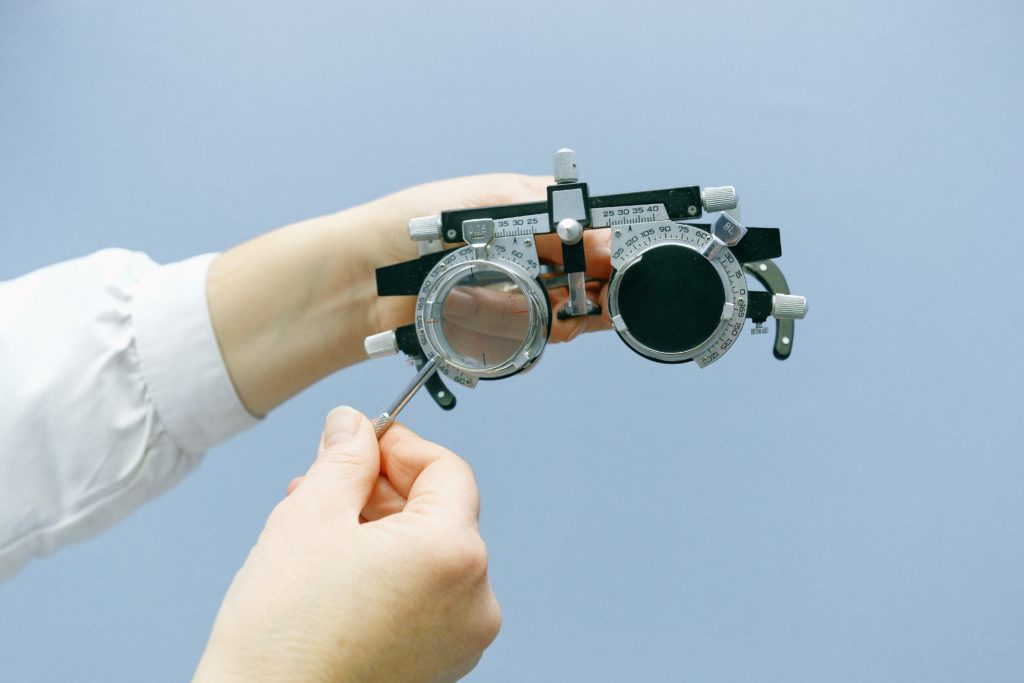Putting things right
10 mins read
If you’re unhappy with the service you’ve received from a healthcare service, you can provide feedback, make a complaint, or find some other way to put things right. The processes for feedback and complaints are different in each UK nation.
View content only relevant to your country:
In this article
Understanding your rights
In England
The NHS Constitution sets out the rights you have if you are unhappy with your care in the NHS. It also encourages everyone to give feedback, both positive and negative, about your experiences of NHS care in order to improve services.
In Scotland
The Charter of Patient Rights and Responsibilities sets out your rights when you use NHS services in Scotland. An easy read version of the charter is also available
It summarises what you are entitled to when you use NHS services and receive NHS care in Scotland. It explains what you can do if you feel that your rights have not been respected. You also have the right to be informed how your feedback, comments, concerns and complaints will be handled.
In Northern Ireland and Wales
If you’re unhappy with the service you’ve received from a healthcare service, you can provide feedback, make a complaint, or find some other way to put things right.
Making a complaint
In England
Because the NHS is made up of many different organisations, it can be difficult to know who you need to complain to.
If your complaint is about a service or the care you received, you can complain directly to the organisation that provided the care or service. For example: a GP surgery, a hospital or a community services trust. Search for ‘complaints’ or ‘complaints policy’ on their website.
You can also complain to the organisation that ‘pays for’ the services. In England, this is your local Integrated Commissioning Board (ICB). Find your local Integrated Care Board.
To complain about your GP, dentist, pharmacist, optician or specialised acute service (provided in relatively few hospitals), you can either:
- Contact them directly. Information on how to complain should be listed on their website
- Contact the NHS England commissioner responsible for these services
See how to complain to NHS England.
NHS Complaints Advocacy
All areas of England have an organisation that provides independent advocacy to help you make a complaint about an NHS service or organisation.
An advocate can attend meetings with you and review any information you’re given during the complaints process. You can seek advice from an NHS complaints’ advocate at any stage of the process.
Your local Healthwatch can help you find your NHS Complaints Advocacy organisation. Some Healthwatch provide this service themselves.
Alternatively, most hospital and community services websites have details of their local organisation on their website – search for complaints.
NHS complaints process and policies
The NHS complaints process should be the same wherever you live in England. All organisations that provide NHS care must have a complaints policy that details what you can expect and relevant timescales.
It should be on their website (search for complaints), or you can ask your local PALS for the complaints policy.
Generally, if you have a complaint about an NHS service, you must initiate the complaint within 12 months of the event happening or as soon as you become aware of it.
Parliamentary and Health Service Ombudsman (PHSO)
If you have complained to your local service, Integrated Commissioning Board or NHS England, and you are unsatisfied with the response, you can complain to the Parliamentary and Health Service Ombudsman who will investigate your complaint further.
The PHSO has a useful online tool to check whether you can complain to them.
In Northern Ireland
If you have a complaint about some aspect of your child’s healthcare, you can raise it with the Complaints Manager at the Health and Social Care Trust responsible for the service.
In Scotland
If you have concerns, you can speak to a member of staff in the first instance. This can be the best way to give feedback and resolve issues quickly. If you can’t, or you do not wish to do this, you can ask to speak to a senior member of staff or the Feedback and Complaints Officer for the NHS organisation involved.
To make a complaint :
- Contact your NHS Board by phone, email or online.
- If your complaint is about a GP, pharmacy, dentist or hospital, you can find the relevant contact information from NHS inform.
- For full details on how to make a complaint, visit NHS Inform Feedback and Complaints.
You have the right to independent advice and support when making a complaint. You may ask to have an independent advocate to help you give your views. If you have a mental health disorder, you have a right to this.
You can contact the Patient Advice and Support Service (PASS) for independent advice and support when making a complaint. PASS offers free and confidential advice and support to anyone who uses the NHS in Scotland. Citizens Advice Scotland provides this services, and it’s available via any Citizens Advice Bureau in Scotland.
In Wales
Talk to the staff involved with their care or treatment as soon as possible. They will try to resolve your concerns immediately. If this doesn’t help, you can contact the health board or trust’s “concerns” team (see below).
If you have a concern about services received from the GP, dentist, pharmacist or optician, ask the practice to investigate. You can also ask your health board to do this on your behalf.
Complaints to the health board or trust
Each health board or trust has their own “concerns team”. To find their details, you can phone NHS 111 Wales on 0845 4647 or visit the board’s website.
If you unhappy with health board’s response, you can contact the Public Services Ombudsman for Wales.
You might find the following information helpful:
Complaints to Public Health Wales
Public Health Wales is the national public health agency in Wales.
It exists to protect and improve health and wellbeing and reduce health inequalities for people in Wales. Public Health Wales also takes complaints.
PALS – patient advice and liaison service
For complaints involving hospitals, each health board has a Patient Advice and Liaison service (PALS) with support officers to help make your voice heard.
PALS can provide help with:
- Providing information about the NHS complaints system, including where you can get independent help.
- Health related questions, including about the NHS and any local support groups.
- Resolving health concerns – especially useful if you are in hospital and are unhappy or concerned about your treatment.
- Getting more involved in your own healthcare.
Other ways to address concerns
In England
There are several ways you can raise a concern or give positive or negative feedback.
Friends and Family Test
If you have seen your GP, been in hospital or received an NHS community service, you should be asked to complete a Friends and Family Test. This is where you can give feedback about your care.
You can still provide feedback even if you haven’t been asked to. Just ask the staff member for their Friends and Family Form.
PALS – patient advice and liaison service
Most hospitals and community services have a PALS, usually based in the local hospital. You can find your local PALS on the NHS website.
PALS can provide help with:
- Health-related questions, including about the NHS and any local support groups.
- Resolving health concerns – especially useful if you are in hospital and are unhappy or concerned about your treatment.
- Getting more involved in your own healthcare.
- Providing information about the NHS complaints system, including where you can get independent help.
Online forms
Many hospitals and community services have online forms to provide feedback. Search their website for comments, feedback and complaints.
Healthwatch
Healthwatch is the independent national champion for people who use health and social care services. There is a local Healthwatch in every area of England.
Your local Healthwatch can provide information on:
- How to access health and social care services.
- How to make complaints.
- Your rights in relation to health and social care.
- Local services, including reports it publishes about those services.
Care Opinion
Care Opinion is an independent online feedback site that works with NHS organisations. You can search for other stories about your local services or leave your own feedback.
In Northern Ireland
The Patient and Client Council (PCC) supports the public with questions, concerns and complaints to do with health and social care. The PCC operates a freephone helpline.
If you’re considering legal action, you can speak to a Law Centre and Children’s Law Centre. You may be eligible for free legal aid to help meet the costs of legal advice. Get advice before taking legal action.
In Scotland
Mediation
Mediation is a service where independent mediators help the relevant parties to reach an agreement. You can request, or Health Boards may offer, to provide this service. Both parties must agree to take part before this can go ahead.
You can get help finding mediation services in your area by asking the Feedback and Complaints Officer at your local health board.
Care Opinion
You can also provide feedback by sharing your experience on the Care Opinion website. It is an independent, non-profit organisation that enables people to post public, but anonymous, stories about health and care services.
Scottish Public Services Ombudsman
If you are unhappy about the way the NHS has handled your complaint, you can complain to the Scottish Public Services Ombudsman
Patient Experience Programme
The Patient Experience Programme supports NHS Scotland to use patients’ experiences to improve health services. As part of this, NHS Boards encourage patients to provide feedback through a range of ways. This includes local surveys, interviews and group discussions. Contact your local NHS board to become involved.
Support and more information
In England
The PHSO has some very useful hints and tips if you are considering a complaint about an NHS service.
In Northern Ireland
Read more about complaining about health services in Northern Ireland.
In Scotland
Good practice in health and social care comes from good conversations, shared patient and professional experiences and suggestions from parent carers.
To get involved in wider conversations and raise issues, see:
- The Health and Social Care Alliance Scotland.
- The Scottish Children’s Services Coalition.
- Children with Exceptional Healthcare Needs.
Or get in touch with Contact Scotland [email protected]
In Wales
The Community Health Council’s independent advocacy service provides free and confidential support. You can find your local Community Health Council on their website linked above.
The Public Services Ombudsman for Wales can help with complaints.
See also information on complaints from NHS Wales.
Related information

Working with professionals
Often a child with additional needs, regardless of their condition, may be getting support from a number of different agencies or professionals….
Read more
Introduction to health services
Find out how healthcare is structured in the four UK nations, how to access services, and where to find out more about…
Read more
Help with health costs
It is possible to qualify for help with NHS costs such as prescriptions, vouchers for glasses, dental treatment and reasonable travel costs…
Read more